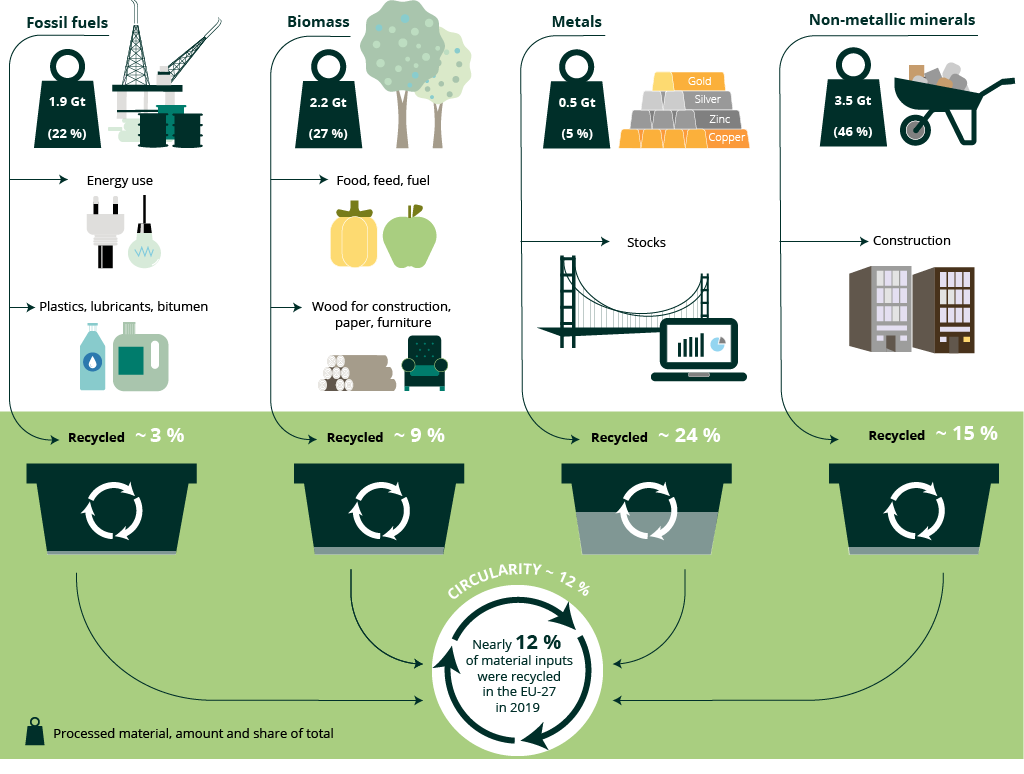On 9 February 2021, the European Parliament adopted a resolution on the new Circular Economy Action Plan (CEAP), based on a report of the Committee on Environment, Public Health and Food Safety (ENVI). The report introduces the very first legally binding targets to reduce primary raw material use, stop reusable materials waste and encourage longer product lifecycles at EU level. MIO-ECSDE welcomes this unprecedented move from the EU as a real step towards achieving sustainability ambitions.
This decision echoes the results of the new milestone briefing by the European Environment Agency (EEA) that calls societies to rethink what growth and progress means regarding global sustainability. According to the document only 12% of the material input was being recycled in the EU in 2019, and without taking further actions, waste generation will rise by 70% by 2050.
The ENVI report aims to give a strong mandate to the European Commission to make ambitious proposals in a number of forthcoming legislative initiatives, including the Sustainable Products Initiative, the Circular Electronics Initiative and the Empowering the Consumer for the Green Transition, which are all expected to be tabled this year.
What is more, the Parliament aims to influence the Commission to propose standards broadening the scope of the “Ecodesign Directive” to include non-energy-related products. This should set product-specific standards, so that products placed on the EU market perform well, are durable, reusable, can be easily repaired, are not toxic, can be upgraded and recycled, contain recycled content, and are resource- and energy-efficient.
The MEPs stressed that binding 2030 targets are needed for material use and our consumption footprint, covering the whole lifecycle of seven key sectors namely electronics and ICT; batteries and vehicles; packaging; plastics; textiles; construction and buildings; food, water and nutrients. These sectors have a huge potential and will have a tremendous effect on establishing a full-fledged circular economy in order for climate goals agreed upon in the Green Deal and the Paris Agreement to be met.
The results from “Europe’s state of the environment 2020” showed that Europe will not achieve its vision of ‘living well within the limits of the planet’ by continuing to promote economic growth without changes in consumption patterns and efficient ways to manage environmental and social impacts.
Read in French here
